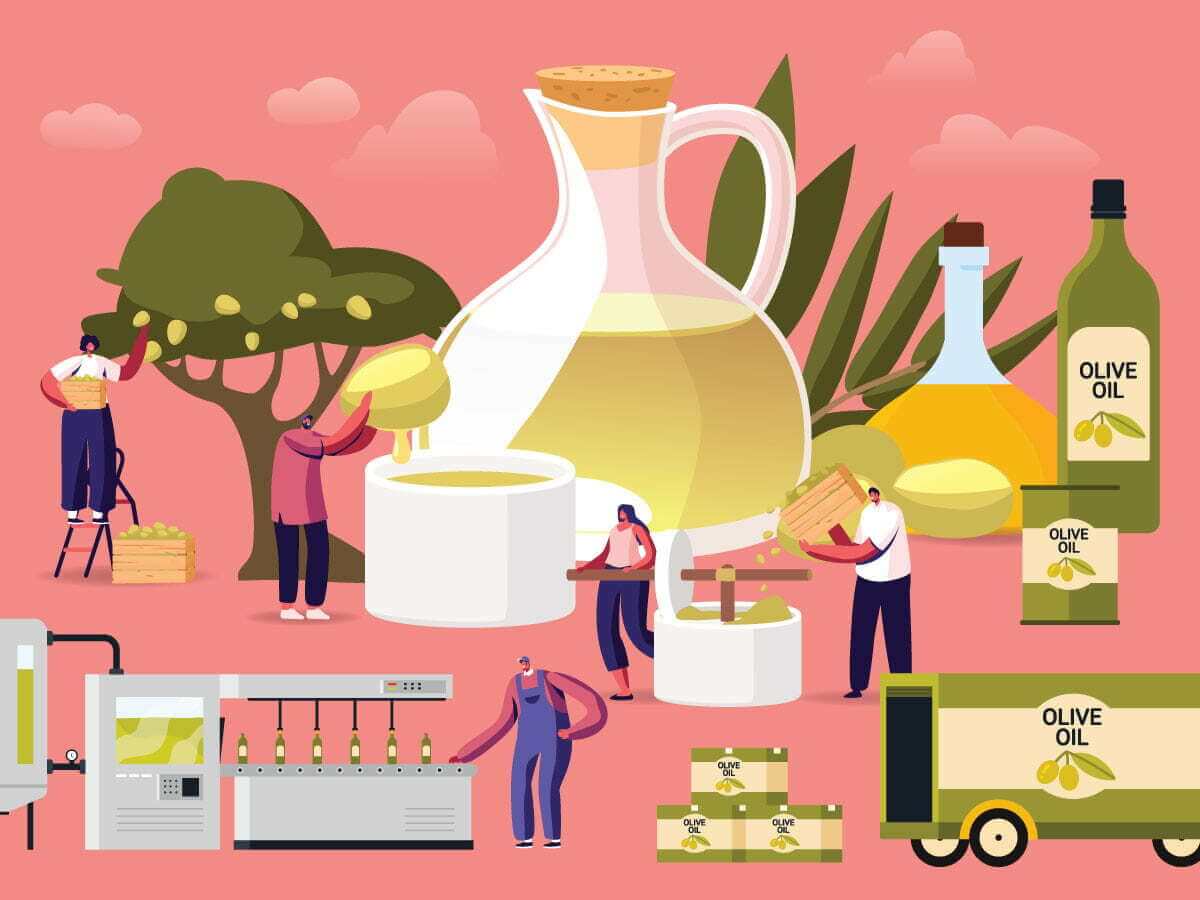
Americans use millions of gallons of olive oil per year, and the perceived superiority of olive oil sourced from European countries creates ripe opportunities for importers. Boutique olive oil shops have become commonplace in malls and shopping centers throughout the country. If you’re thinking of importing this popular foodstuff, you’ll need to be familiar with rules and guidelines from certain government agencies.
Key Takeaways
In this article, we’ll show you what it takes to get imported olive oil to the tables of U.S. consumers.
When considered a foodstuff or an edible cooking oil, shipments of olive oil must comply with FDA regulations. These regulations are in place to ensure the health and safety of U.S. consumers.
The FDA requires shipments of olive oil to have the following information documented.
Shippers must also follow general import regulations from CBP, such as ISF filings for shipments brought in via cargo ship.
Imported olive oil must meet the same standards as that which is produced in the U.S. Additionally, since olive oil falls into a regulated category, all shipments must be covered by a customs bond regardless of their value.
Importers can participate in the Voluntary Qualified Importer Program (VQIP) through the FDA to ensure expedited inspection to clear customs. While the program is voluntary and fee-based, eligible shippers are able to get imported goods through the process more quickly than they would otherwise.
If any of the requirements are overlooked throughout the process, the shipment could be significantly delayed for delivery, re-exported, or destroyed.
Related: The Complete Guide to FDA Customs Clearance
Duties on olive oil vary based on factors such as its quality (virgin or extra virgin), how it’s been processed, and whether it’s a certified organic product. Most types of olive oil are subject to a 3.4¢ to 5¢ per kilogram general rate of duty, with oil unfit for human consumption having no duty at all.
These duty rates can fluctuate based on the product’s country of origin. The United States has free trade agreements in place with several countries, and olive oil imported from these trade partners will not incur duties. Unfortunately, none of these countries are top exporters of this particular commodity.
In 2024, importers brought over three billion dollars worth of olive oil into the United States, with the following countries getting the lion’s share of the business.

As you can see, Italy and Spain are major exporters of olive oil, which makes them worth some further discussion.
Italy and Spain currently rank as the world's top producers of olive oil. Their locations in the Mediterranean create ideal conditions for growing many varieties of olives, which in turn provide various grades of olive oil.
As mentioned earlier, blanket tariffs of 10% on goods imported into the US imposed earlier this year will apply to olive oil. This goes to illustrate how quickly tariffs can be applied and repealed. Working with an experienced customs broker is a smart way to mitigate these additional costs.
Related: Importing Food From Italy: A Ripe Opporunity

The hurdles of importing olive oil in the U.S. can test the resolve of an importer going it alone. However, working with one of our licensed customs brokers can help you avoid costly mistakes.
We have years of experience helping importers like you bring shipments into the country while complying with all relevant regulations. With our assistance, you can focus on other business needs while we take care of the complexities of customs clearance.
Our list of services for importers includes:
Take advantage of our robust range of customs services by calling us at (855) 912-0406 or submitting a contact form online. We can help you make importing olive oil a smooth process.
 Copy URL to Clipboard
Copy URL to Clipboard
I am a United States Service Member relocating from Italy to South Carolina. Do I need to have an authorization or permit to import olive oil into the state? It will be solely for personal use. I am planning to import no more than 25 kg.
If I require an authorization/permit, can you please point me in the right direction?
Buenas tardes.
Me gustaría saber si puedo simplemente enviar de regalo a mi padre alguna botella de aceite de oliva desde Italia.
No entiendo bien si todos estos requisitos son para importar grandes cantidades o si son válidos también para mí que de manera puntual quiero enviar un pequeño regalo.
Gracias
I would like to import homemade olive oil in different bottles and weights from Lebanon to sell in the US, what documents are required from my side and what are the US requirements? Any additional information would be greatly appreciated.
Hi l am interested in importing pure olive oil from Algeria.
What are the requirement please.
I am interested in importing home made olive oil in different bottles and weights from Italy to sell in the US what documents needed from my end and the US requirements ? Any additional information is highly appreciated and valued.
Hello, I am from Israel, I am sell by Etsy (artist site) a wooden pen made by olive wood. I want to sell a package that contain wooden pen and bottle of olive oil size is 250cc. how you can help me to sell this package to privet customer in USA
Best Regards
Roni
I am interested in importing olive oil in different bottles and weights from Turkey to sell in the US what documents needed from my end and the US requirements ? Any additional information is highly appreciated and valued
Hi Togul,
In addition to regular CBP requirements for importing, you're also going to be up against FDA regulations which are fairley strict. You'll need to be sure your supplier is registered with the FDA and you'll also need to file Prior Notice with the FDA before you shipment arrives.
Most food importers that we work with benefit greatly from a consultation with our Licensed Customs Brokers. Our Brokers review the entire process and all of the regulations that your shipment(s) will need to comply with. You can learn more about and sign up for a consultation at the link below.
Import Consultation
I am interested in importing olive oil in different bottles and weights from Israel to sell in the US what documents needed from my end and the US requirements ? Any additional information is highly appreciated and valued
Hi Rimon,
There are many details involved when it comes to importing food for resale into the U.S. You'll need to work with facilities that are registered with the FDA, provide numerous pieces of safety documentation and more. Our Customs experts can go through all of these details with you.
You can schedule a consultation with our experts at the following link- Licensed Customer Broker Consulting. We look forward to helping you!